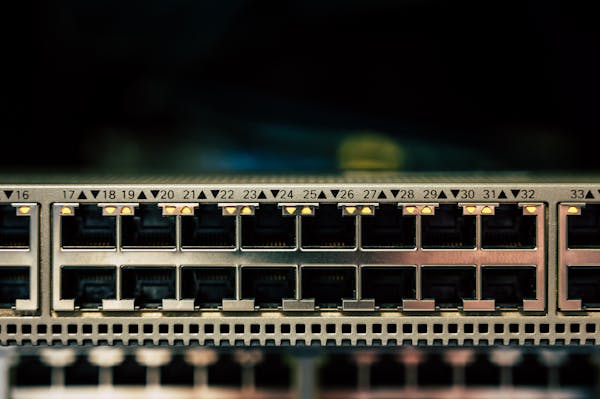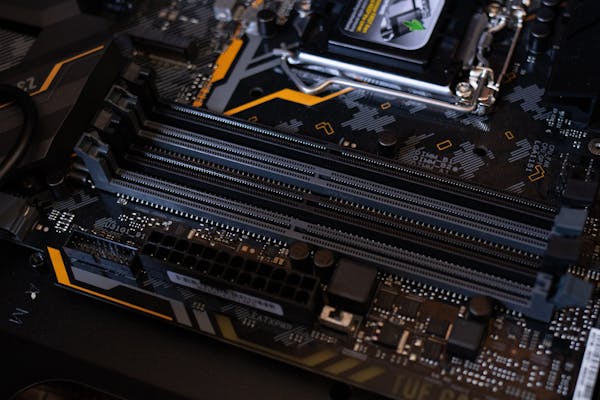
Understanding 4G Rotating Proxies
As internet privacy becomes paramount, 4G rotating proxies have gained prominence for bypassing geo-restrictions.
An Overview of 4G Rotating Proxies
These proxies leverage cellular data connections to rotate IP addresses to users. Unlike static proxies, they offer dynamic IP rotation, enhancing anonymity.
Source article: rebrand.ly
How Do They Work?
Once initiated, a dynamic IP from a mobile network is provided. These IPs are switched periodically, hindering surveillance.
Advantages of Using 4G Rotating Proxies
- Increased Security: Dynamic IP rotation prevents tracking.
- Accessing Region-Locked Content: Changing IPs enable viewing of geo-blocked sites.
- Minimized Blocking Risks: Frequent IP changes avoid detection systems.
Applications of 4G Rotating Proxies
- Web Scraping: Rotating IPs maintain access to target sites.proxies facilitate automation.
- Marketing Research: Changing IPs validate ad placements.
- o Consider}
When opting for a 4G rotating proxy, consider:
- Diversity of IP Addresses: A larger pool enhances anonymity.
- Rotation Frequency: Determine if the service has fixed durations.
- Geographical Coverage: Access to multiple regions aids in geo-testing.
Limitations to Be Aware Of
- Cost Implications: 4G proxies can impact budgets compared to other types.
- Performance Issues: Mobile networks might experience fluctuations.
- Ethical and Legal Considerations: Ensure usage avoids illicit activities.
Final Thoughts
4G rotating proxies provide dynamic IP solutions, positioning them as essential tools in modern internet usage.
Delving into the Operational Aspects of 4G Rotating Proxies
Amidst the landscape of digital security, 4G rotating proxies have gained prominence for maintaining user anonymity.
An Overview of 4G Rotating Proxies
These proxies employ cellular data connections to rotate IP addresses to users. Unlike static proxies, they rotate IPs after set intervals, reducing detection risks.
Operational Dynamics
When activated, users receive a 4G network IP. These IPs rotate based on time or requests, preventing consistent monitoring.
Benefits of Mobile 4G Proxies
- Enhanced Anonymity: Dynamic IP rotation obscures user identity.
- Accessing Region-Locked Content: Changing IPs allow access to restricted content.
- Reduced IP Bans: Frequent IP changes prevent bans.
Use Cases for Mobile Proxies
- Data Extraction: Rotating IPs maintain access to target sites.
- Automated Posting: Dynamic proxies support multiple profiles.
- Competitor Analysis: Changing IPs simulate diverse user locations.
Factors to Consider
Before selecting a provider, consider:
- Diversity of IP Addresses: A larger pool offers better rotation.
- Rotation Frequency: Determine if the service offers customizable intervals.
- Regional Availability: Access to multiple regions supports diverse tasks.
Potential Challenges
- Cost Implications: 4G proxies may be pricier compared to other types.
- Network Reliability: Mobile networks can be less stable.
- Regulatory Concerns: Ensure usage avoids illicit activities.
Summing Up
4G rotating proxies provide dynamic IP solutions, establishing their importance in today’s digital age.
Today’s online landscape, staying anonymous and avoiding blocks has become more necessary than ever. Affiliate marketers, agencies, and SEOs often turn to proxy servers to simulate different locations. Among these, 4G LTE rotating proxy servers have become the go-to solution.
But how do they compare to other alternatives like static proxies? Let’s dive deep.
== What is a 4G Rotating Proxy?
A LTE rotating IP proxy is a proxy that relays requests through real mobile networks. These proxies change IPs at custom timeframes or upon request, emulating human behavior and eliminating the risk of bans or blocks.
== Main Proxy Types
Let’s summarize the key proxy types before comparing:
1. **Datacenter Proxies**
– High-speed and cheap, but easily flagged.
2. **Residential Proxies**
– Use IPs assigned to real homes. More legit, but slower and costlier.
3. **4G Mobile Proxies**
– Use real SIMs on LTE networks. Ideal for automation and stealth.
4. **SOCKS5 Proxies**
– Protocol-based, flexible, used for various apps, not just HTTP.
== Comparison Table
| Feature | 4G Rotating Proxies | Datacenter Proxies | Residential Proxies | SOCKS5 Proxies |
|————————|———————|———————|———————|—————-|
| IP Source | Mobile Network (SIM)| Data Centers | Home IPs | Varies |
| Rotation | Yes (Frequent) | Sometimes | Optional | Manual |
| Ban Resistance | High | Low | Medium | Depends |
| Speed | Medium | High | Low-Medium | High |
| Price | High | Low | Medium | Low-Medium |
| Target Use | Social, Ads, Bots | General Scraping | E-commerce, Research| General |
| Block Detection | Low | High | Medium | Medium |
== Technical Advantages of 4G Rotating Proxies
Why are 4G proxies so powerful?
– **Real Device Trust**: Websites trust mobile IPs more than others due to carrier NAT and wide user pools.
– **Shared Reputation**: IPs are shared across many users, making banning a single user risky.
– **Geo-targeted Mobile Carriers**: Rotate between networks in real U.S. cities or countries.
– **Dynamic Rotation**: Can rotate every few minutes or after each request.
– **Bypasses Captchas**: Mobile IPs are less likely to trigger captchas or challenge verifications.
== Where 4G Proxies Win
Here’s the truth— if you’re scraping Google or LinkedIn, nothing works better than a solid 4G proxy.
– Facebook and Reddit limit data center abuse.
– Web scraping? You’ll trigger fewer blocks.
– Ads management across banned zones? Done.
== Where They Fall Short
– **Cost**: They’re not cheap.
– **Speed**: Slower than static datacenter options.
– **Limited Threads**: Some providers limit concurrent usage.
== SOCKS5 vs 4G: Protocol vs Behavior
If you need raw protocol-level control, SOCKS5 is your friend. But they don’t rotate IPs on their own.

| Attribute | 4G Proxy | SOCKS5 Proxy |
|———————|——————–|——————–|
| Protocol Type | HTTP/HTTPS | SOCKS5 (All apps) |
| Rotation | Yes | Manual |
| IP Trust Level | Very High | Medium |
| Use Cases | Social, Ads, Bots | Torrenting, Apps |
== Use Cases Side-by-Side
**4G Rotating Proxies:**
– Social Media Management
– Mobile Ad Verification
– SEO Scraping
– Sneaker Bots / E-com Testing
– Marketplace Automation
**Datacenter Proxies:**
– High-volume scraping (non-sensitive)
– Speed-demanding tasks
– Price-conscious campaigns
**Residential Proxies:**
– E-com price intelligence
– Research tools
– CAPTCHA-heavy targets
**SOCKS5 Proxies:**
– Application-level traffic routing
– Anonymity over torrents
– Bypassing firewalls
== How to Choose the Right One?
Each proxy has a time and place. Here’s how to choose:
– Need speed? Go datacenter.
– Need trust and stealth? Go 4G mobile.
– Need app-level routing? Go SOCKS5.
– Need wide IP pools without rotation? Try residential.
== Future of 4G Rotating Proxies
With AI detection systems growing smarter, only mobile proxies are keeping up. We’re seeing:
– 5G proxy rollouts in testing
– Smarter rotation algorithms
– Integration with automation platforms like Jarvee, NextPost, Puppeteer
== Final Verdict
If stealth matters, LTE proxies are your best bet. For any campaign that’s sensitive, black-hat, or gray area, it’s worth the investment.
== Spintax Conclusion
If you’re testing products or scraping competitors, investing in the right proxy is a make-or-break decision.
They come with a premium, but the ROI makes up for it.
https://www.fortinet.com/resources/cyberglossary/proxy-server
https://en.wikipedia.org/wiki/Proxy_server
https://surfshark.com/blog/proxy-server
